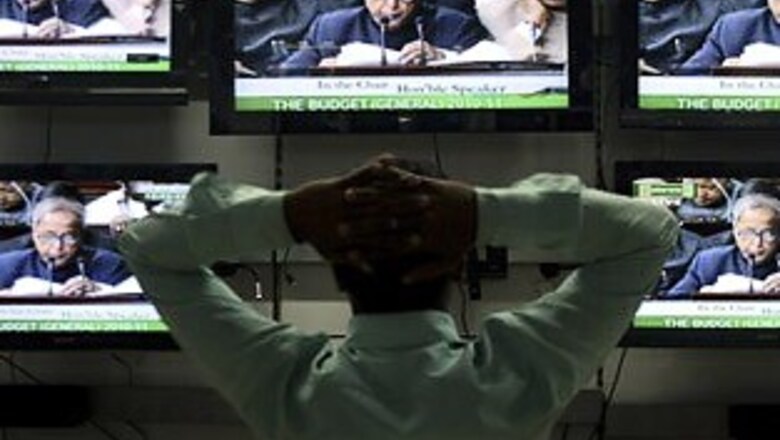
views
New Delhi: In a move to streamline the cable TV fee structure, broadcast regulator TRAI on Wednesday informed the Supreme Court that it plans to cap the monthly charges at Rs 250 across the country, except for pockets where Conditional Access System (CAS) is implemented.
In an affidavit filed before the Apex Court, the Telecom Regulatory Authority of India (TRAI) said that it proposes to divide cable services into three pricing slabs.
The first one would have a monthly charge of Rs 100 for a minimum of 30 Free-To-Air (FTA) channels, including the mandatory Doordarshan channels.
TRAI said for those customers opting for the basic package (which includes Doordarshan channels) with up to 20 pay channels, the monthly bill will be fixed at Rs 200.
If subscribers choose a basic package with over 20 pay channels, they will have to pay Rs 250 per month.
"... The authority is of the view that the retail price cap for pay cable service should be fixed at Rs 250 per connection per month with the actual monthly bill being left to the business model of the individual operator -- subject to the ceiling," said TRAI in the affidavit filed through its counsel, Sanjay Kapur.
Earlier, there were no limits on the number of FTA channels, but the monthly charge was fixed at Rs 83, while a maximum of Rs 260 was fixed for a basic package plus pay channels.
In CAS areas, including South Delhi and parts of Chennai, Mumbai and Kolkata, pay channels have been charged at Rs 7 per month.
As per industry estimates, there are 300 FTAs and 125 pay channels in the country at present.
On the issue of allowing Multi-System Operators (MSOs) and cable operators to choose channels on an a-la-carte basis from broadcasters, TRAI said it would not be possible in non- CAS regulated areas, where feeds are still given in analog mode.
"In the analog, non-addressable environment, TRAI is of the view that a-la-carte should not be mandatory at the wholesale level, as technological constraints in any case make it impossible for the benefits of a-la-carte provisioning to be passed on to the subscriber," said TRAI.
As far as the carriage fees charged by MSOs and area/local cable operators from broadcasters for putting their channels on their network, TRAI said it is not feasible to place any cap on the amount of carriage and placement fee and it should be left to the players to decide among themselves.
"The authority is of the view that all carriage and placement fee transactions should be part of the interconnection agreement between the broadcasters and
MSOs/LCOs," said TRAI, adding that all such agreements between broadcasters and MSOs/LCOs should be filed before it.
TRAI further said, "Such filings of carriage and placement fees will enable the authority to monitor carriage and placement fees regularly and regulate the same through intervention where considered necessary."
Providing some relief to the broadcasters, TRAI allowed them to raise the price of their channels and existing bouquets by nine per cent due to price inflation on the basis of the Wholesale Price Index (WPI).
"Keeping in mind all these factors and the interests of consumers, the authority is of the view that it would be appropriate to allow an increase of 9 per cent over the existing price of the channels/bouquets," said TRAI in its 273-page affidavit filed before the court.
Moreover, TRAI also said it was not in favour of allowing market forces to determine the rates of pay channels.
"The principal risk of allowing forbearance (market- determined pricing) is that it could lead to an increase in price, especially for dominant/driver channels in the short run," said TRAI, adding that it "was premature to allow forbearance".
The regulator further said: "... A retail price ceiling -- at a reasonable level -- that balances the consumers' interest with the growth potential of the industry is warranted in the case of cable TV services in non-CAS markets."
TRAI's affidavit has come after the Apex Court had directed it to formulate a comprehensive pricing mechanism after consulting various stakeholders. The regulator has also filed a draft copy of the proposed Broadcasting and Cable Services Tariff Order, 2010, which would be notified after the Apex Court gives its nod.
Upholding the orders of sectoral tribunal TDSAT, the Supreme Court had on May 13, 2009, directed the regulator to study afresh and issue a comprehensive order on the pricing issue in non-CAS areas of the country.
Later, on the request of the TRAI, the Apex Court had granted six months extra time in January and directed it to file its report by June 30, 2010.




















Comments
0 comment